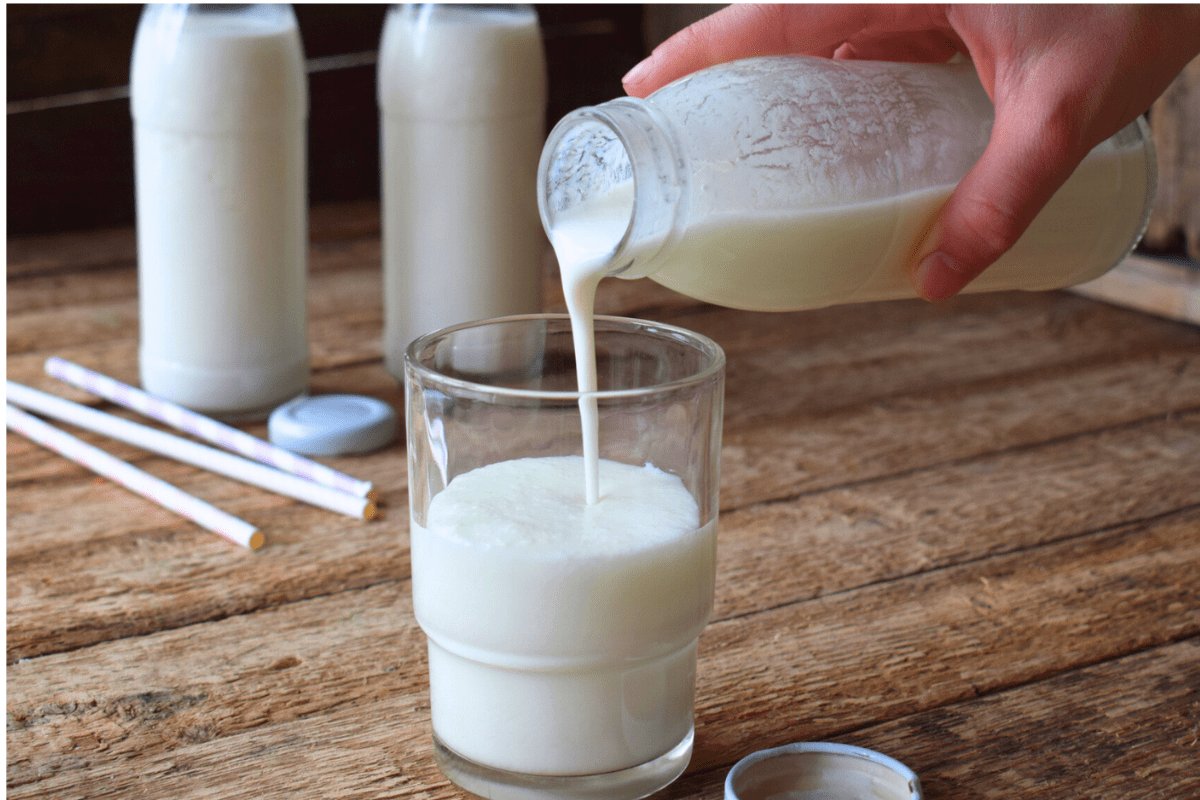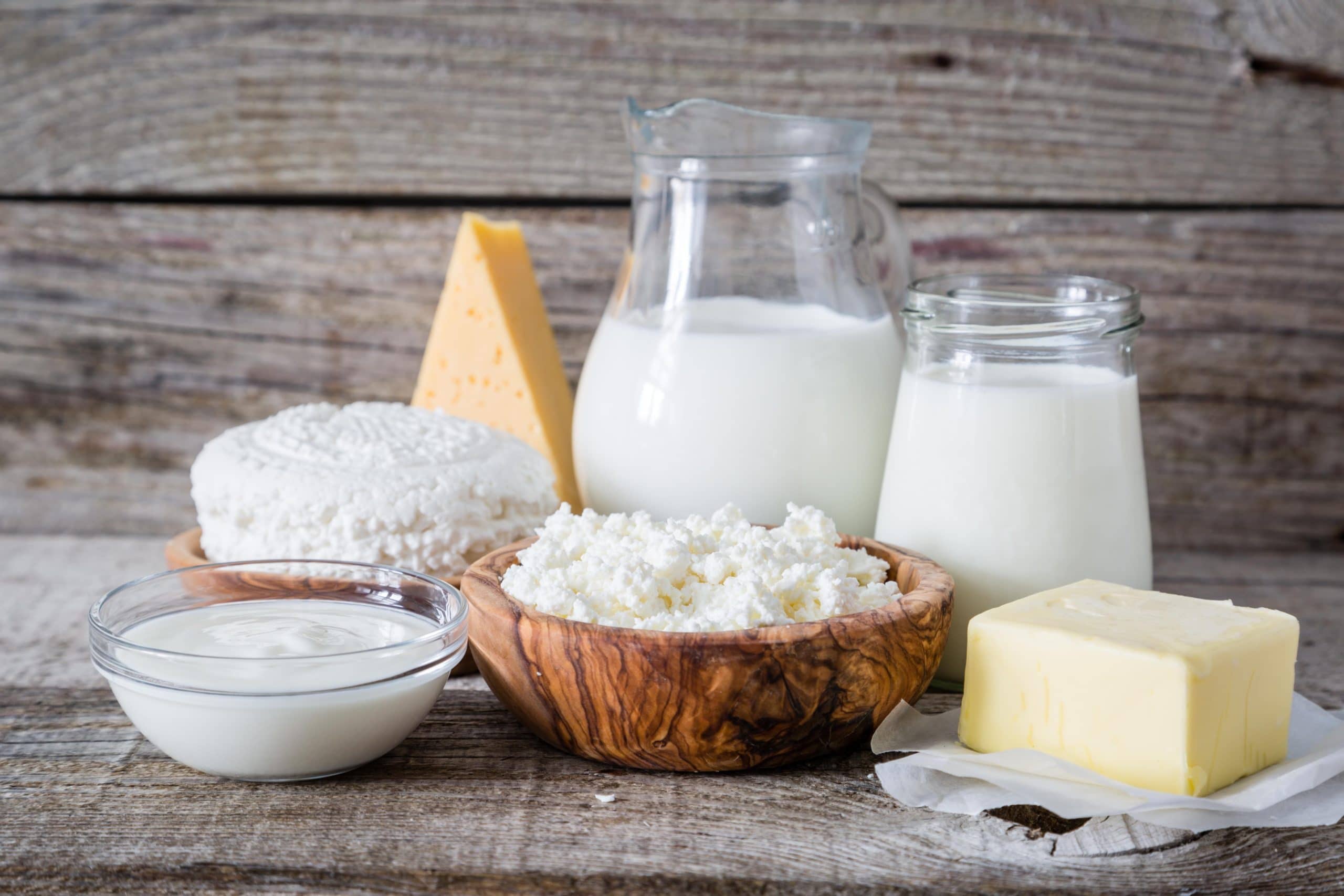It’s a fact—dairy delivers great taste and good nutrition! It’s also a fact that many safeguards and regulations are in place to ensure the delicious dairy foods you buy are safe, wholesome, and nutritious. Let’s dive into some frequently asked questions about milk!
What is the Difference Between Organic and Conventional Milk?
The term organic simply refers to on-farm practices. All milk produced in the United States must adhere to the same strict federal standards for quality, purity, and sanitation. Those using the “USDA organic” seal must ensure that the milk comes from dairy farms that meet the following criteria:
- Cows are exclusively given food grown without the use of pesticides or commercial fertilizers.
- Cows are given periodic access to pasture.
- Cows are not treated with supplemental hormones.
- Cows have not been given certain medications to treat illness.
Whether a farm chooses to follow organic farming practices or not, all dairy farmers follow high standards to ensure that their cows and land are well cared for. You can read more about milk’s journey from farm to table here or learn more about life on the farm and taking care of cows with dairy farmer stories by watching the latest episode of This American Dairy Farmer.
Is Organic Milk Healthier Than Conventional Milk?
Organic and regular milk are equally nutritious and wholesome, providing the same nutrients despite different practices. Next time you go to the grocery store check the nutrition label on organic and conventional milk and you’ll see that every 8-ounce serving offers the same amount of thirteen essential nutrients, including calcium, vitamin D and potassium. You can learn more about the nutritional benefits of dairy here. According to United States Department of Agriculture (USDA) and the Academy of Nutrition and Dietetics, conventionally produced food and organically produced food are equally safe and nutritious. Organic milk is just one of many options in the dairy case to fit different lifestyles and personal preferences.
What is the Difference Between Grass-fed and Organic Milk?
Grass-fed and organic do not necessarily mean the same thing. Unlike the USDA organic label for organic milk, there is not a specific, unifying label for the certification of grass-fed dairy products. If milk has a grass-fed label on it, this generally means that the milk comes from cows who were fed a grass and forage-based diet. Farmers following organic production practices may also provide their cows with feed sources in addition to grass and pasture, so a grass-fed label further explains that the milk is from cows with a grass-based diet.
The science on nutritional differences between dairy products from grass-fed cows and conventionally produced dairy products is still emerging with some research indicating that milk from grass-fed cows may contain slightly higher amounts of healthy fats, such as omega-3-fatty acids and conjugated linoleic acid (CLA). More research is needed in this area, but it’s a fact that all milk, whether it is organic, grass-fed, or conventionally produced, contains the same amounts of essential nutrients that promote good health.
Are There Antibiotics in Milk?
No! There are never any antibiotics in the store-bought milk you drink. Dairy farmers use antibiotics to provide the best possible care for their cows. Like humans, cows are only given antibiotics when they are sick. Antibiotics are given with direction from the farm’s veterinarian and the milk from a cow treated with antibiotics is discarded and does not reach the food supply. Farmers use strict on farm practices to ensure that milk from cows treated with antibiotics never leaves the farm. In addition to on-farm safety measures, all milk is tested for the most commonly used antibiotics upon delivery at the dairy plant and any milk that tests positive cannot be sold to the public. Strict government standards and industry protocols ensure that pasteurized milk is wholesome, safe, and nutritious. You can read more about antibiotics here.
Are There Hormones in Milk?
All cow’s milk, whether it is organic or conventional, contains tiny amounts of naturally occurring hormones. In fact, many plant and animal foods such as legumes, grains, milk, meat, and eggs contain hormones. These hormones are important to life and serve as messengers that help regulate specific functions in living organisms. No additional hormones are added to milk and the naturally occurring hormones that are found in milk are not a health concern at all.
Bovine somatotropin (bST) is one naturally occurring hormone in cows. Its physiological function is to help young cattle grow, and adult cows to produce milk. A small amount of bST is naturally present in all milk, including organic milk. A synthesized copy of bST – recombinant bovine somatotropin (rbST) – is available for farmers who choose to use the hormone as a farm management tool to boost their herd’s milk production. Health authorities such as the Food and Drug Administration (FDA) and the National Institutes of Health (NIH) have determined that milk from cows treated with rbST is both nutritious and safe and does not affect human hormones.
Still, most of the milk found at the grocery store is from cows not treated with rBST. This milk is often labeled as such. To learn more about hormones and dairy, click here.
Bottom Line
Dairy farmers are dedicated to caring for their cows and producing a high-quality product that everyone can enjoy. No matter what kind of milk you choose to drink, you can be confident knowing that it is nutritious, safe, and wholesome!




